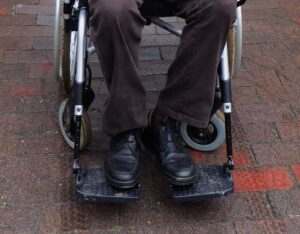Case Study – Don’t Take My Foot! Surrogate Decision-Making
Case Study – Don’t Take My Foot! Surrogate Decision-Making

By Ryan Pferdehirt, D.Bioethics, HEC-C
November 2020
Surrogate Decision-Making and Patient Nonadherence Bioethics Case Study
The patient, Lockett, is an 82-year-old male, admitted for shortness of breath and complications from his diabetes. Lockett has been diabetic for over 10 years and has not been following the treatment plan outlined by his physicians. He says that he has had sores on his right foot for several months, but he had just hoped they would go away naturally. Likely due in part to the patient’s nonadherence and avoidance, his foot has worsened and now has become gangrenous.
The surgical team has been consulted and recommends amputation. During a family meeting involving the attending physician, consulting surgeon, a nurse, a social worker, Lockett, and Lockett’s adult son, all the medical team and the patient’s son agree with the recommendation for surgery and amputation of the patient’s right foot.
Lockett is assessed to have decisional capacity in general, although not fully so. He has begun to exhibit confusion about some things when asked. He seems clear, however, when asked by the surgeon if he will consent to amputation surgery. Lockett refuses. He also demands to remain Full Code status. He wants to live and wants to retain bodily integrity. “Don’t take my foot!”
After the family meeting with providers, the patient’s son says to the medical team that after Lockett’s mental status worsens due to gangrene and sepsis, his capacity for making decisions will also be lost, surely. “When Dad needs me to make his decisions, I will consent to the surgery for him,” the son states. While this is the decision the medical team wants for their elderly patient, the son’s anticipated surrogacy also makes them a bit uncomfortable.
They are requesting an ethics consult.


